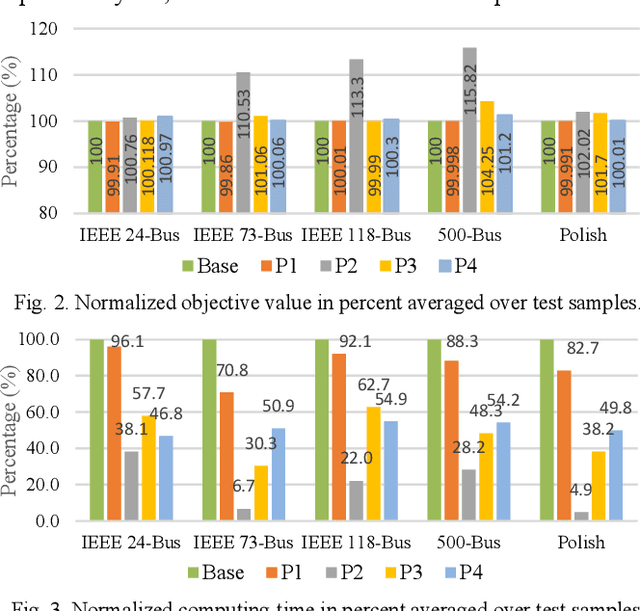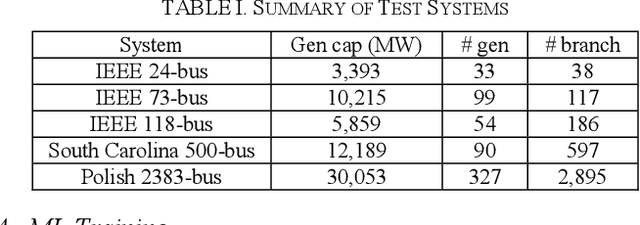Machine Learning Assisted Approach for Security-Constrained Unit Commitment
Paper and Code
Nov 17, 2021



Security-constrained unit commitment (SCUC) which is used in the power system day-ahead generation scheduling is a mixed-integer linear programming problem that is computationally intensive. A good warm-start solution or a reduced-SCUC model can bring significant time savings. In this work, a novel approach is proposed to effectively utilize machine learning (ML) to provide a good starting solution and/or reduce the problem size of SCUC. An ML model using a logistic regression algorithm is proposed and trained using historical nodal demand profiles and the respective commitment schedules. The ML outputs are processed and analyzed to assist SCUC. The proposed approach is validated on several standard test systems namely, IEEE 24-bus system, IEEE 73-bus system, IEEE 118-bus system, synthetic South Carolina 500-bus system, and Polish 2383-bus system. Simulation results demonstrate that the prediction from the proposed machine learning model can provide a good warm-start solution and/or reduce the number of variables and constraints in SCUC with minimal loss in solution quality while substantially reducing the computing time.
 Add to Chrome
Add to Chrome Add to Firefox
Add to Firefox Add to Edge
Add to Edge